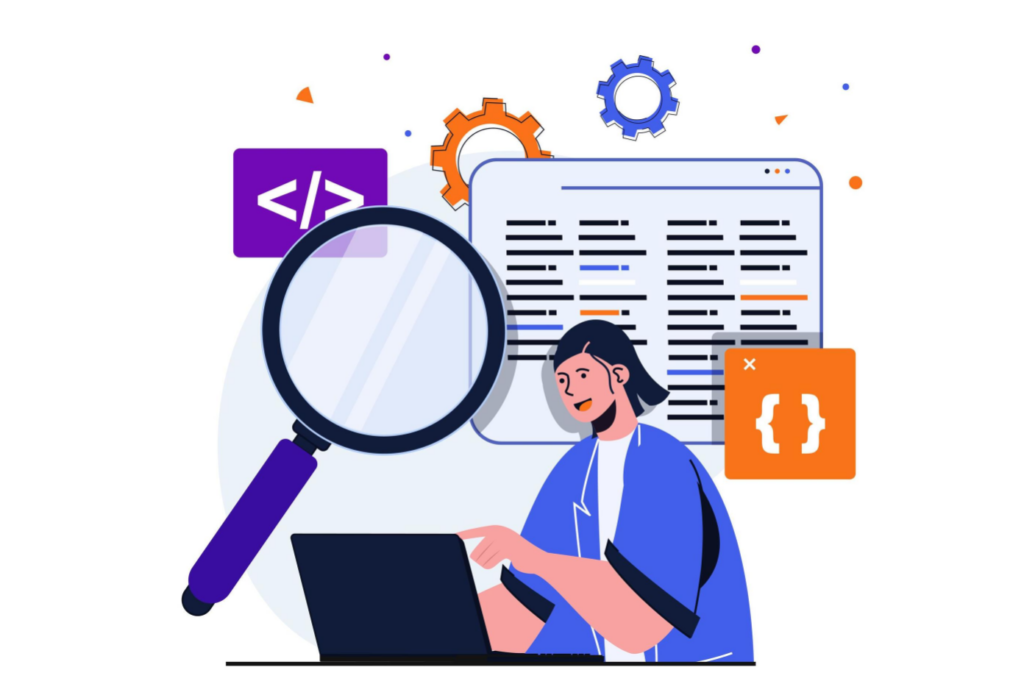Python vs PHP: 2024 Comparison
As we approach 2024, the technological landscape is continually evolving, and the selection of the right programming language has become crucial for the success of any software development project. Two of the most popular languages that developers often find themselves choosing between are Python vs PHP. This comprehensive guide aims to provide an in-depth comparison of Python vs PHP to help you make an informed decision based on your specific project requirements.
Table of content
Table of Contents
As we approach 2024, the technological landscape is continually evolving, and the selection of the right programming language has become crucial for the success of any software development project. Two of the most popular languages that developers often find themselves choosing between are Python vs PHP. This comprehensive guide aims to provide an in-depth comparison of Python vs PHP to help you make an informed decision based on your specific project requirements.
Introduction
Python: The Swiss Army Knife of Programming
Python, a high-level, interpreted, and object-oriented programming language, is celebrated for its enormous library support and versatility. Since its first release in 1990 by Guido Van Rossum, Python has evolved into a powerful language with a reputation for simplicity and readability. Its wide array of applications ranges from web development and data science to machine learning and scientific computing, earning Python the nickname of the “Swiss Army Knife of Programming”.
PHP: The Web Development Maestro
Contrastingly, PHP, standing for ‘Hypertext Preprocessor’, is a server-side scripting language primarily used for creating dynamic HTML content. Invented in 1995, PHP has become a powerful language for web development, especially when working with server-side scripting, building web applications, and managing databases. Its robustness and ease of use have made it an ideal choice for developers aiming to create dynamic and interactive web experiences.
Maturity: Python vs PHP
Python: The Mature Snake
Python, first implemented in 1989, is a mature programming language that has passed through rigorous testing and refinements over the years. The Python community values code stability, managing major releases carefully to minimize disruptions for existing codebases. Python continues to evolve with regular updates, ensuring that it stays relevant and competitive in the ever-changing landscape of software development.
PHP: The Evolved Elephant
PHP, although younger, has significantly transformed since its inception. Early versions of PHP were relatively simple and limited, but subsequent iterations have enhanced both stability and reliability. PHP continues to evolve with new versions, demonstrating the community’s commitment to improving the language over time.

Features and Language Characteristics
Python: The Jack of All Trades
Python is acclaimed for its clean syntax, which emphasizes readability and maintainability. It supports both object-oriented and procedural programming paradigms and boasts a rich standard library that simplifies common tasks. Python’s extensibility allows developers to seamlessly incorporate Python code within other programs, facilitating integration with existing systems. Its cross-platform compatibility ensures that code written for one operating system can run on others without major modifications.
PHP: The Master of Web Development
While PHP is primarily used for server-side scripting, it, too, has evolved to support a wide range of programming paradigms. PHP seamlessly integrates with various databases, making it ideal for developing database-driven web applications. It provides numerous built-in functions and libraries specifically tailored for web-related tasks, simplifying tasks like handling forms, connecting to databases, and managing sessions.
Learning Curve
Python: The Gentle Slope
Python’s simplicity and readability make it a popular choice among beginners. Its clear syntax encourages good programming practices, making it an excellent language for individuals new to programming. The strong Python community provides an abundance of support, including forums, Q&A sites, and tutorials, making it easier for learners to find solutions to their problems.
PHP: The Steep Climb
PHP, on the other hand, is known for its low learning curve, especially for those interested in web development. Its integration with HTML makes it accessible for beginners to create dynamic web pages quickly. However, mastering PHP and its quirks can be a bit of a steep climb, especially for those unfamiliar with web development.
Usability: Python vs PHP
Python: A Versatile Tool
Python’s clean and structured code, along with its object-oriented nature, makes it a versatile tool for various applications. From creating web applications and automating tasks to performing data analysis and building machine learning models, Python’s usability spans across various domains.
PHP: A Web Development Specialist
PHP, while embracing object-oriented programming, is predominantly associated with web development. Its seamless integration with databases makes it a practical choice for developers interested in web applications and databases. PHP’s primary strength lies in its capability to create dynamic web pages and interact with databases, making it a specialist in web development.
Feature / Aspect Python PHP Basics Origin Developed in the 1980s by Guido von Rossum Developed in 1994 by Rasmus Lerdorf Key Differences: Purpose Object-oriented, general purpose programming language Created for server-side scripting Security: Protection Python is one of the most secure open source programming languages Has improved, can prevent basic cyberattacks Speed: Performance According to Benchmarks Game, Python’s speed time is 47.8 seconds Current version of PHP runs almost two times faster than previous versions Syntax Complexity Ease of Understanding Python is beginner-friendly without a steep learning curve Since PHP is embedded in HTML, it might be more rigid to understand Usage: Application Can be used for web development, ML, big data, AI, etc. Primarily used for web development Documentation: Clarity & Comprehensiveness Comprehensive documentation abilities Excellent documentation, though not as comprehensive as Python’s Library Support: Availability Extensive library that supports almost every application Good library support, but not as extensive as Python’s Frameworks: Popular Frameworks Flask, Django, Pyramid, etc. Zend, Codeigniter, Laravel, etc.
Community Support
Python: A Global Family
Python boasts a strong and active community of developers. The Python Software Foundation and the open-source community provide ongoing maintenance and support for Python. The community contributes to Python’s growth by creating documentation, sharing code snippets, and developing open-source libraries.
PHP: A Focused Group
PHP, although having a smaller community, is particularly popular within the web development community. There are numerous PHP-based open-source projects and a wide range of extensions and libraries available. The PHP community stays predominantly focused on web development.
Use Cases: Python vs PHP
Python: The Multi-Domain Player
Python’s versatility allows it to be used for a wide range of applications. It is extensively used in domains such as web development, data science, machine learning, artificial intelligence, and scientific computing. Python’s wide range of applications makes it a highly sought-after language in the tech industry.

PHP: The Web Development Pro
PHP, primarily used for web development, excels in creating dynamic web content with HTML. It’s the go-to language for server-side scripting, building web applications, and managing databases. PHP’s focus on web development makes it a favored choice in this domain.
Performance: Python vs PHP
Python: Optimized for Specific Tasks
Python’s performance isn’t known for its raw speed, especially when compared to languages like C++ or Go. However, Python’s performance has been improving, and it’s often “fast enough” for many applications. Libraries like NumPy and PyPy can help optimize specific tasks.
PHP: Fast Execution for Web Applications
PHP’s performance is generally good for web applications. Its execution speed is faster than many other scripting languages, ensuring responsive and efficient web applications. However, it may not be the best choice for high-performance computing tasks outside of web development.
Examples of Applications Built with Python and PHP
Python: From Social Media to Space Exploration
Python’s versatility can be observed in its wide range of applications. Some popular examples include Instagram, Dropbox, Spotify, YouTube, Netflix, Pinterest, Reddit, NASA, and Jupyter Notebook.
PHP: Powering the Web
PHP has powered several widely used applications, particularly in the realm of content management systems and e-commerce platforms. Some well-known examples include WordPress, Facebook, Wikipedia, Magento, Joomla, Drupal, phpBB, Moodle, SugarCRM, and MailChimp.
Conclusion: The Python vs PHP Debate
The Python vs PHP debate ultimately boils down to your specific project requirements and your team’s expertise. Both languages have their strengths and are valuable tools for web and app development. Python is a versatile language with a wide range of applications, while PHP excels in web development.
For beginners, Python is often recommended due to its readability and simplicity. However, PHP’s simplicity in web development and its integration with databases make it a practical choice for web developers.
Ultimately, both Python and PHP have strong communities that provide long-term support, ensuring that your codebases can be maintained and extended with confidence. The choice between Python and PHP should be made based on your project’s specific requirements, your team’s expertise, and the desired learning curve.


